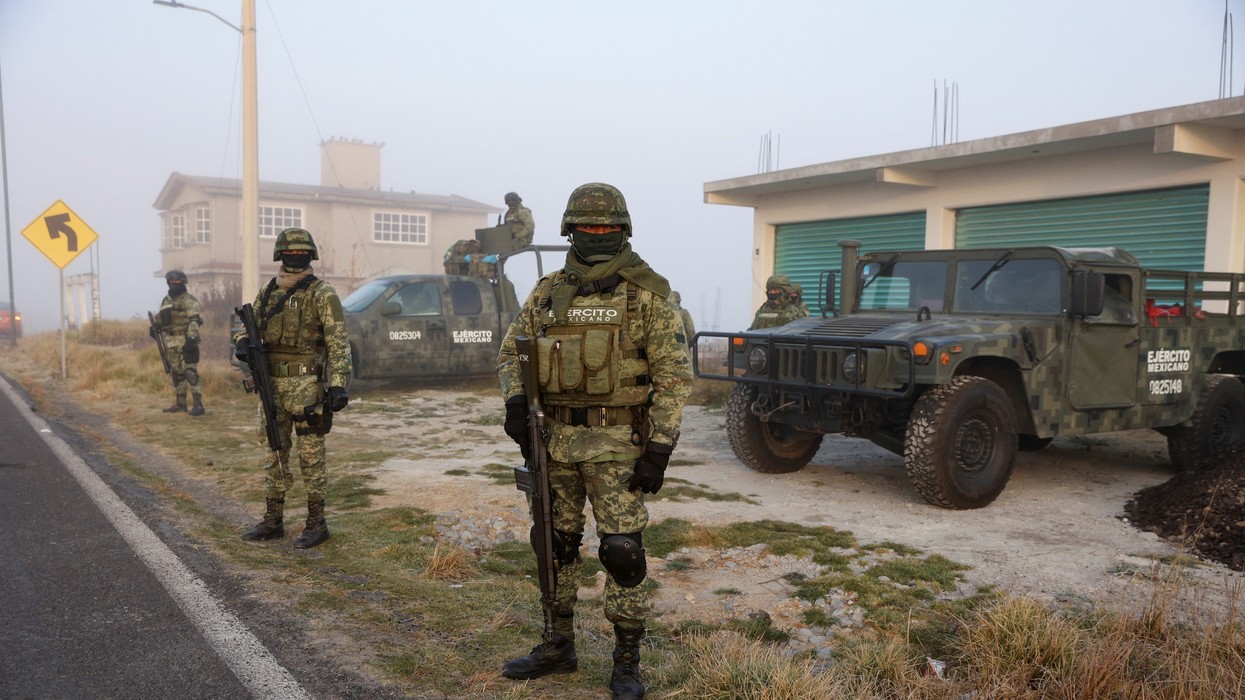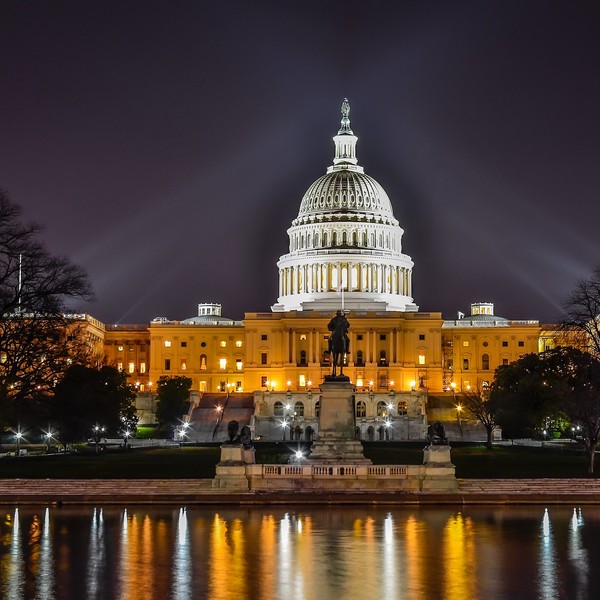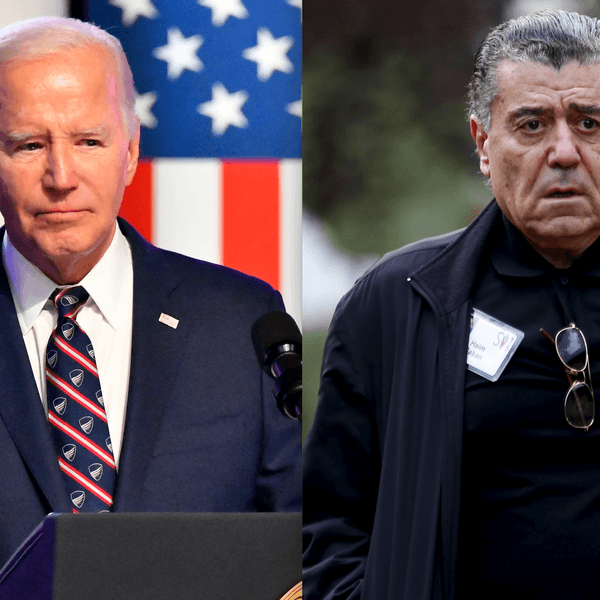With a ceasefire in place once again between Israel and Hamas, analysts are assessing the results of the recent violence. The destruction in Gaza — which was enormous, especially considering the relatively short duration of the fighting this time around — and the lingering effects of the rocket attacks on Israel, are the most obvious features. They lead many to conclude that nothing has changed.
But things certainly did change for the United States in numerous ways. President Joe Biden will be forced to reckon with those changes, and depending on how he decides to address them, they could have some of the most profound implications for U.S. policy in Israel and Palestine in decades.
Biden initially wanted to de-prioritize the entire issue of Israel and Palestine. Predictably, that proved impossible.
The United States could have defused this crisis before it reached the point of more devastation in Gaza, with over 240 killed, and rockets causing a dozen deaths in Israel. The United States intervened too late with measures that, had they been employed a few days earlier, could have averted these tragic deaths.
Biden must now realize that he cannot afford to ignore this issue. Hopefully, he also recognizes that although the playing field might look the same, recent events have caused some significant shifts.
Changing Palestinian politics
When Secretary of State Antony Blinken visits the region this week, he is expected to meet with Palestinian President Mahmoud Abbas. Part of the motivation for this meeting is to bolster Abbas’s flagging position as the leader of Palestinians under Israeli occupation.
But Abbas, whose position was already weak in the eyes of the Palestinian public, has emerged from the recent confrontation between Israel and Hamas as a nearly irrelevant figure.
While Israel bombarded Gaza from the air, Abbas remained largely silent. Even before the attacks on Gaza, he had done little in response to Israel’s aggressive actions in the sensitive area around the al-Aqsa Mosque and Israeli settlers’ ongoing effort to force Palestinian families out of the Sheikh Jarrah neighborhood in East Jerusalem.
That seeming helplessness in the face of Israeli actions bolstered the image of Abbas as an ineffectual leader, one more concerned with preserving his own meager power than with trying to end decades of Palestinian dispossession and disempowerment.
Abbas’s decision, shortly before the hostilities began, to indefinitely postpone Palestinian elections bolstered a widespread perception that he was a corrupt leader who would only allow a free election if he believed he would win. The Biden administration’s explicit approval of the postponement contributed to the perception that the United States cares little about Palestinian democracy.
Hamas, by contrast, may have opened the door for Israel’s all-out assault, but it is perceived as having stepped up to defend Jerusalem when it was in danger of slipping further into total Israeli control. There is little doubt that they have supplanted the Palestinian Authority in the eyes of the Palestinian public.
There will be even greater reluctance in Ramallah, Jerusalem, and Washington now to permit Palestinian elections, and the Biden administration will have to decide how long they want to maintain the charade that Abbas is a legitimate leader of the Palestinian people.
If all the United States wants is political theater to divert pressure as it pursues re-entry into the Iran nuclear deal and the long-sought after pivot to Asia, Abbas can fill the token Palestinian role. But if it wants to make some progress and at least lay the foundation for a genuine peace process down the road, it will have to find a way to deal with a Palestinian leadership that has some respect among the Palestinian people. And that will probably mean finding a way to include Hamas in the process.
The bipartisan consensus in Washington has eroded
While Biden tried, at least initially, to play this latest crisis by the traditional Democratic handbook, he found that his party was not lining up behind him as it had so often for his predecessors, Barack Obama and Bill Clinton.
On May 16, while Biden was steadfastly insisting on characterizing Israel’s actions as “self-defense,” 29 Democratic senators, led by Jewish newcomer from Georgia, Jon Ossoff, called for an immediate ceasefire. Not only was this overt pressure on the president, but it was also in direct contradiction to the statements coming out of Israel. This statement, representing more than half the Democratic Senate caucus was unprecedented.
Before the ceasefire, Democratic progressives in the House of Representatives pressed House Foreign Affairs Committee Chair Gregory Meeks to send a letter to the president requesting a pause in an already approved sale of smart bomb equipment to Israel.
Although Meeks backed off the request, the fact that such a thing could even be considered by a powerful House committee while Israel was exchanging fire with Hamas was unimaginable only a short time ago.
As has been widely noted, the progressive wing of the Democratic party is growing, and more and more, it is paying attention to foreign policy in general and Israel-Palestine policy in particular.
Journalist Anshel Pfeffer, writing in Haaretz, said, “To think that just because the progressive Twitterati, including young Jews and a few members of Congress, are more worked up this time, that it’s a game changer for a conflict 6,000 miles away, is a bit arrogant.”
But Pfeffer underestimates the shift and he understates the role U.S. politics plays in this conflict. For all of Netanyahu’s bluster, and notwithstanding his public comments, once Biden told him to agree to a ceasefire, he did so. The United States may not be able to dictate all of Israel’s behavior, but it still has a big impact.
Pfeffer also underestimates the number of Democratic voters that are growing impatient with support for a state that is increasingly being identified with apartheid. The participation of several mainstream Democrats like Amy Klobuchar and Tim Kaine, among others, in the ceasefire call should alarm Israeli hawks, as should the fact that even Sen. Bob Menendez, widely seen as the most pro-Israel Democrat in the Senate, was more critical of Israel than Biden.
Years of Netanyahu spurning Democrats and embracing the Republican Party have come back to haunt Israel’s supporters in Washington and made the overwhelming bipartisan consensus a thing of the past.
Democrats, including the president, will no longer be able to claim that opposing Israeli policies is bad politics, nor can they safely side with Israel on ethical grounds.
President Biden will not be able to simply ignore the Israel-Palestine issue anymore, nor will he be able to address it with a peace process that brings more Israeli settlements and a worsening situation in Gaza. He has an opportunity to reorient U.S. policy toward the “equal” rights for both sides he began hinting at during this crisis.
But propping up Abbas and tired cliches about the “right to self-defense” and a two-state solution are going to ring hollow among Democratic voters, and increasingly, among Democrats on the Hill. More and more Democrats have gone from being tired of this issue to being tired of Israel’s aggressive actions. Biden is an excellent reader of political winds and surely knows this. The question is where he will go from here.















